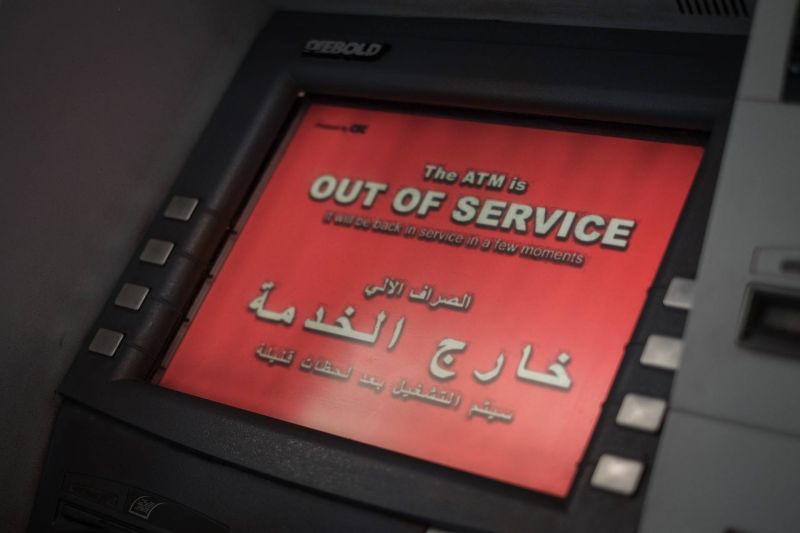
An ATM in Beirut. (Credit: João Sousa/L'Orient Today/File photo)
BEIRUT — The draft budget for 2024, debated but not yet passed this week by Parliament, has come under heavy criticism by members of the civil society and legislature alike.
Namely, it relies heavily on indirect taxes to generate revenue and fails to mention substantial reforms.
In a report published earlier this week, The Legal Agenda, The Policy Initiative (TPI), Kulluna Irada and the Lebanese Association for Taxpayers’ Rights (ALDIC) joined forces to issue a statement laying out the shortcomings of the budget in its current form.
Five major concerns were outlined, in addition to a more tailored critique of specific articles within the budget draft.
L’Orient Today explains a few of them:
Reduced role of the state
The budget has been reduced to a mere $3.3 billion, according to the joint report, less than 20 percent of its size in 2019 ($17 billion), decreasing spending available through public institutions to minimum levels.
Wages and salaries of public sector employees represent half of the budget expenditure, a rather significant portion.
No recovery plan
The budget fails to address the burden of Lebanon’s accumulated debt and does not take into account any plan to restructure public debt.
These reforms were part of a staff-level agreement Lebanon reached nearly two years ago with the IMF, in which Beirut would make a series of structural changes in exchange for a bailout.
Lebanon has yet to make any of those reforms.
Perpetuating a regressive tax system
The tax burden falls disproportionately on the poorest and the most law-abiding taxpayers, while the wealthy and rentiers are rewarded through preferential treatment of royalties, exemptions and concessions on real estate and capital gain taxes.
The majority of the budget revenues (77 percent) are set to be generated through indirect taxes — such as the VAT and customs duties — which are deemed easier to collect. They constituted 55 percent of revenues in 2019.
The draft budget also reduces the VAT threshold from $67,000 to $33,000 for businesses, burdening medium-to-small enterprises. In other words, businesses that made less than $67,000 in annual profits were previously exempt from VAT — now only businesses that make less than $33,000 are exempt.
For Sami Zoughaib, an economist at The Policy Initiative, resorting to indirect taxation as a means to raise funds is “the laziest way” to generate revenue, and the most harmful approach. The budget clearly fails to serve the interest of the people, he says.
Meanwhile, income taxes were reduced to less than 20 percent of the total revenues of the budget.
The report also raises a red flag on the balance achieved between revenues and expenditures, labeling it nothing more than “a cosmetic enhancement.”
It further criticizes several articles of the draft, that they say induce tax evasion or include unjustified tax exemptions.
Zoughaib stresses that the budget should primarily be a policy tool and not an accounting tool — that is, it should propose an economic vision. “We cannot think about a budget that would actually serve a purpose, in terms of expenditure, without first thinking about broad economic reforms that allow us to have a bigger economy.”
“Clearly we have none of this — no strategy and no vision. All we have is officials rallying to raise revenues in order to solely pay the salaries of the employees in the public sector — who, funnily enough, remain heavily underpaid.”